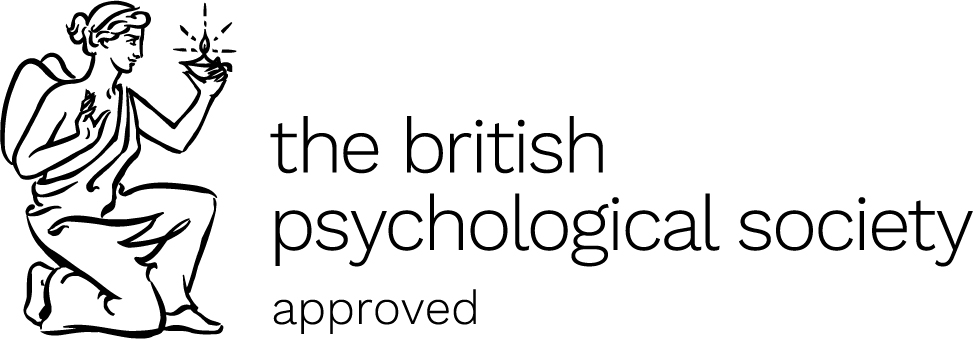
The Certificate consists of 4 modules / 8 training days that can be booked together or separately as individual courses that give you SDS Accreditation Level Two and a number of follow-up courses to sustain/advance your level of Accreditation. The course is designed to provide both an up-to-date theoretical overview of a selection of trauma treatment approaches along with their practical application within a range of practice environments.
Four Core Modules of the BPS Approved Certificate in Trauma Treatments:
- Trauma: Psychopathology and Treatment (2 days)
- New Approaches to Traumatic Grief and Loss (2 days)
- CBT for Working with Post-Traumatic Stress Disorder (2 days)
- Resilience: Prevention and Recovery from Traumatic Damage (2 days)
Special Offer: Save, if you purchase the BPS Approved Certificate in Trauma Treatments as a whole. CLICK HERE TO CHECK THE CURRENT OFFER
The focus will be on separate modules relating to Trauma’s Psychopathology & Treatment including:
- a broad overview of approaches from the Somatic Therapies (Levine, Rothschild & Van Der Kolk), through CBT to EMDR;
- CBT approaches to PTSD (Ehlers, Clark & Brewin);
- new approaches to traumatic grief & loss (focusing on Solution Focused approaches and challenges to pathologised models of trauma);
- resilience for prevention & recovery from traumatic damage (a review of current research and practice, laying the groundwork for training in the promotion of resilience in children, adolescents & adults).
After each individual module delegates will be awarded with a Certificate of Attendance.
Delegates will receive a full BPS Approved Certificate of Assessed Academic Competence after attending all 4 modules of the course (60 CPD Hours).
The structure of the certificate is as follows:
Trauma: Psychopathology and Treatment (2 days)
This two day course provides a broad practical and theoretical overview of current approaches to treating trauma from a range of theoretical and therapeutic perspectives, such as Somatic Therapies, Porges' Polyvagal Theory, Adaptive Information Processing, EMDR and others.
CBT for Working with Post-Traumatic Stress Disorder (2 days)
A practical two day course for those who work with survivors of trauma, from RTA to childhood abuse. The day combines an overview of the current understanding of Post-Traumatic Stress Disorder (PTSD) with case discussion, demonstration and treatment.
New Approaches to Traumatic Grief and Loss (2 days)
Grief Counselling and Grief Therapy have been strongly influenced over the last thirty years by “stage models” of grief – from Kubler-Ross onwards. However, over the last decade new therapeutic perspectives and research has seriously challenged some of the commonly held assumptions about grief & loss work and their therapeutic implications. Additionally there are particular factors about “traumatic grief” that provide particular challenges to the practitioner.
Resilience: Prevention and Recovery from Traumatic Damage (2 days)
A two day course providing (1) a research based understanding of the role of resilience and (2) key practical skills for both prevention and recovery from traumatic damage. It draws on early work by Werner which explored how and why around a third of children do not develop problems despite growing up in traumatic and abusive environments right through to Frederickson’s work on the protective role of positive emotions in developing resilience.
Optional Follow Up Courses (not included into the course price):
- Trauma & Trauma-Informed Practice
- Sexual and Emotional Trauma: Using CBT with Adults & Children with Andrew Beck
- Trauma: Polyvagal Exercises For Safety & Connection with Deb Dana
- Impact of Trauma and Post Traumatic Stress Disorder in Children and Adolescents
- Compassion-Focused Approach to Recovering from Trauma with Chris Irons
Certificate Outline
- Trauma: Psychopathology and Treatment (2 days)
- New Approaches to Traumatic Grief and Loss (2 days)
- CBT for Working with Post-Traumatic Stress Disorder (2 days)
- Resilience: Prevention and Recovery from Traumatic Damage (2 days)
- Final exam - multiple choice, 80% pass mark
Total days: 8
Total Hours: 60
Access: Online Course
Certificate Payment Options
You have two payment options:
Option 1:
Spread the cost - pay per course as you go along:
Total RRP £1600 (incl. VAT)
Option 2:
Special Offer: Save, if you purchase the BPS Approved Certificate in Trauma Treatments as a whole. CLICK HERE TO CHECK THE CURRENT OFFER
Optional Follow Up Courses (not included into the course price):
- Trauma & Trauma-Informed Practice
- Sexual and Emotional Trauma: Using CBT with Adults & Children with Andrew Beck
- Trauma: Polyvagal Exercises For Safety & Connection with Deb Dana
- Impact of Trauma and Post Traumatic Stress Disorder in Children and Adolescents
- Compassion-Focused Approach to Recovering from Trauma with Chris Irons
SDS Accreditation in Working with Trauma (Four Levels of Professional Development)
The Levels below refer to the accreditation you acquire by attending the BPS Approved Certificate in Trauma Treatments.
Foundation Stage is the foundation level that you obtain by attending any of the modules comprising the above Certificate, but not all, via live training or live/recorded webcast.
This level gives you a Certificate of Attendance, as well as access to the course materials and other resources, and enables you to state in your CV that you have that you are on the path towards your SDS Accreditation in Trauma Treatments and currently have achieved the Foundation Stage.
This level lasts for 3 years, after which you cannot make the above statements and access course resources.
This level is extended as you progress with your training for the Certificate. Doing each next module within the 3 year period from the previous one, extends this level for another 3 years. Completing all 4 modules of the Certificate moves you up to the next level of SDS Accreditation.
SDS Accreditation, Level 2 (Assessed Academic Competence) is the level of accreditation you obtain by attending all modules of an SDS Modular Course via live training or live/recorded webcast and passing an appropriate online exam for each of them.
This level of accreditation gives you a BPS Approved Certificate in the appropriate subject, as well as access to the course materials. It also enables you to state in your CV that you have Level 2 (Assessed Academic Competence) SDS Accreditation as a Practitioner in Trauma Treatments.
Your accreditation currently lasts for 3 years, after which you cannot make the above statements and access course resources.
This level of accreditation is renewable by continuing your training on trauma-related topics with SDS Seminars. Attending each of these topics extends your accreditation by another three years. These courses are booked at the advertised prices.
SDS Accreditation, Level 3 (Advanced) is as Level 2, with the addition of at least 12 CPD hours from the courses below:
- Trauma & Trauma-Informed Practice 6 Hrs
- Sexual and Emotional Trauma: Using CBT with Adults & Children with Andrew Beck 14 Hrs
- Trauma: Polyvagal Exercises For Safety & Connection with Deb Dana 6 Hrs
- Impact of Trauma and Post Traumatic Stress Disorder in Children and Adolescents 14 Hrs
- Compassion-Focused Approach to Recovering from Trauma with Chris Irons 7 Hrs
This level of accreditation gives you a BPS Approved Certificate in the appropriate subject, as well as access to the course materials. It also enables you to state in your CV that you have Level 3 (Advanced) SDS Accreditation as a Practitioner in Trauma Treatments.
Your accreditation currently lasts for 3 years, after which you cannot make the above statements and access course resources.
This level of accreditation is renewable by continuing your training on trauma-related topics with SDS Seminars. Attending each of these topics extends your accreditation by another three years. These courses are booked at the advertised prices.
SDS Accreditation, Level 4 (Clinical Proficiency) is as Level 3, with the addition of:
- Submitting a project of an acceptable standard (3,000 words) at the end of your Certificate training. The purpose of the project is to illustrate that you can apply the academic knowledge gained from the course to a clinical situation.
- Submitting a written statement from your Clinical Supervisor confirming the regularity and duration of your supervision with them and your Competence as a clinician in the chosen topic. Your Clinical Supervisor should meet our qualification criteria.
This level of accreditation gives you a BPS Approved Certificate in the appropriate subject, as well as access to the course materials and other resources. It also enables you to state in your CV that you have Level 3 (Clinical Proficiency) SDS Accreditation as a Practitioner in Trauma Treatments.
You also will be given an option to be listed in the SDS Register of Qualified Practitioners in the appropriate field – our Network of Qualified Practitioners.
Your accreditation currently lasts for 5 years, after which you cannot make the above statements and access course resources.
This level of accreditation is renewable by continuing your training on trauma-related topics with SDS Seminars. Attending each of these topics extends your accreditation by another three years. These courses are booked at the advertised prices.
You also can extend by re-doing any course within the Certificate. Should you do it within the 5 years, your access to these refresher courses is discounted by 50%.* Should you let your accreditation lapse, you pay the full price for the refresher training.

